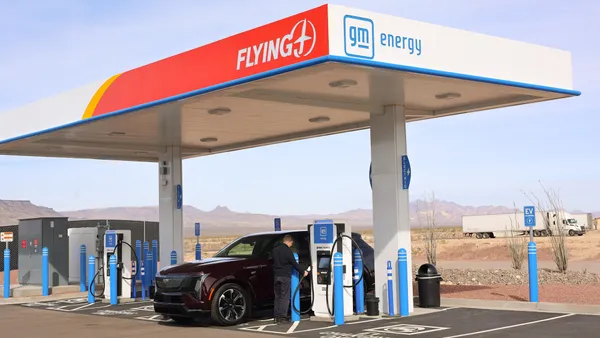Trucking executives noted signs of potential freight market improvement this year, providing analysis during Q1 earnings calls.
J.B. Hunt Transport Services, Wabash and Werner Enterprises provided glimmers of hope into what kind of trucking market the industry could have this year.
Brent Yeagy, the CEO and president of Wabash, doesn’t think the current slowdown of freight rates will drag into next year.
“The freight downcycle seems unlikely to last through the entire year 2024,” he said Feb. 1.
The trailer manufacturer executive noted that a relatively strong labor market, sustained consumer spending, cooling inflation and potential interest rate cuts are putting the U.S. on track for recovery. The firm is also monitoring capacity exiting the market and abatement of macro destocking.
Pressures are continuing as spot and contract rates, particularly in dry van, suffer.
“From a trucker standpoint, rates have to go up, and I can't tell you exactly when that's going to happen,” J.B. Hunt’s Brad Hicks, EVP of people and president of highway services, said in January. He noted that given the inflation in operating costs and plummet in truckload rates, “something is going to have to give there.”
While executives suggested market dynamics could be uncertain as well as challenging in the near-term, there was some clarity, even if the forecast was foreboding.
“Spot freight rates remain low and are not expected to improve until the second quarter,” Werner CEO and Chairman Derek Leathers said Feb. 6. “A more balanced supply and demand environment in the second half will benefit us as we lock in more contractual freight at improving rates.”
Leathers pointed to 71 straight weeks of net deactivations and said new activations have “finally kind of really fallen off the cliff.”
At the same time, momentum is building in Werner’s favor, a stark reality continues to show motor carrier authority exits “to be modest, leaving excess supply,” he said.













